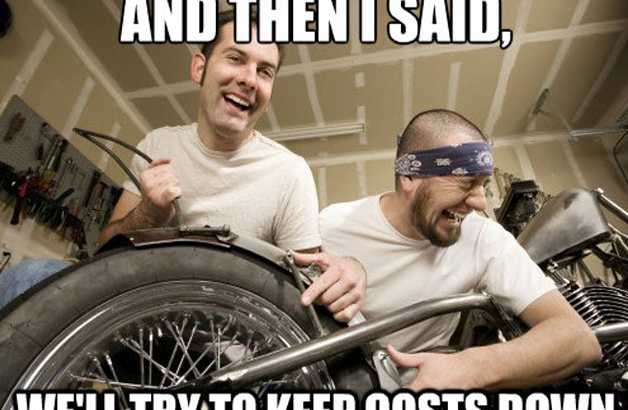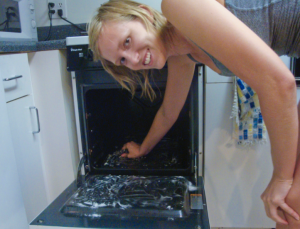This has probably happened to a lot of us, especially women that tend to not know much about automobiles. You bring your car to a garage and get hammered with a crazy bill for repairs, only to find out later that you’ve basically been ripped off by dodgy mechanics…These days, technology is rapidly improving and helps us quickly diagnose our cars without the help of an untrustworthy mechanic.
OBD scanners are used by both car owners and car repair shops alike to read critical electronic information from a car’s computer system. Find more on these code readers here https://www.lifewire.com/what-is-obd-ii-scanner-534868
The Autel AL519 OBD scanner offers you a plethora of information about your car, ranging from why your check engine light is on to critical one-click state emissions checks that will tell you if your vehicle is within government standards. Now that cars have complex electronics systems having a quality OBD scanner is a must for anyone who wants to properly diagnose and repair their car.
Autel AL519 OBD Overview
This scanner works on a broad range of vehicles manufactured after 1996 (OBDII and CAN), on both foreign made cars and imports. So there’s a good chance it’ll work on your car as well. It features a bright color screen for easy reading, as well as audio sounds for different system checks, making understanding the results of the scans a breeze. The Autel AL519 can also turn off your check engine light and clear codes that have been fixed. For the car-owner, this means you don’t have to take your car to a certified mechanic to remove the codes, even after you fixed the problem.
Specifications
– The Autel AL519 OBD scanner comes packed with features. Some of those features include:
– Read, stores and playback of live sensor data
– Prints your data via a PC connection
– Operating system can be updated over the internet
– Check engine light data and reasons
– Able to read generic manufacturer codes specific to your vehicle type
– Much, much more!
One thing to note is that this OBD scanner will not change codes. For example, you cannot change your keyless remote entry code with this unit. The Autel AL519 OBD scanner only reads codes.

Overall Performance
Between the easy-to-read display with audio feedback and the great diversity of vehicles it is compatible with, the Autel AL519 scanner packs a big punch for the sub $100 price tag. One feature not mentioned in the specifications is that it won’t just read the codes and tell you what they mean, the unit will suggest possible fixes.
This saves you time and money when you’re trying to get your car back in working order.
Another significant benefit of this scanner is that there are no batteries to worry about. It draws on the power provided by your car when plugged in (don’t forget to turn the ignition on!). However, some do find this a bit limiting because it means you’re tethered to your car when reading the data.
Price
The Autel AL519 OBD 2 scanner for cars ranges in price, depending on where you buy it from. The price on Amazon is $56 (as of this writing). You can also find it for about $65 at Walmart. Shop around your area to find the best deals. But even if you end up paying a little more, you’ll make up the cost with the savings this OBD scanner gives you concerning easy diagnostics and maintenance.
For your money, this scanner has everything you need to keep your car maintained and in great working order.


 available to us to maintain our houses efficiently.
available to us to maintain our houses efficiently. Thanks to its cleansing and degreasing properties, the solvent allows to maintain your floors: a tablespoon of black soap in a bucket of water and the turn is played!
Thanks to its cleansing and degreasing properties, the solvent allows to maintain your floors: a tablespoon of black soap in a bucket of water and the turn is played! Every week we see another report about the skyrocketing rate of obesity in this country. The rate of obesity among children is supposedly higher than among people generally. Do parents care about the health of their children? What better way to exercise their children than to require them to walk to and from school? There are sidewalks throughout the neighborhoods. I’ve heard of no abductions or accidents in the ten years I’ve lived in Fort Worth. Parents need to stop pampering their children. A little rain, cold, or heat never hurt a child. Walking home alone or in the company of other students teaches a child responsibility and discipline. Even if there were no health benefits to walking, which of course there are, it would be a good idea. Among other benefits, it would reduce vehicular traffic, and therefore smog.
Every week we see another report about the skyrocketing rate of obesity in this country. The rate of obesity among children is supposedly higher than among people generally. Do parents care about the health of their children? What better way to exercise their children than to require them to walk to and from school? There are sidewalks throughout the neighborhoods. I’ve heard of no abductions or accidents in the ten years I’ve lived in Fort Worth. Parents need to stop pampering their children. A little rain, cold, or heat never hurt a child. Walking home alone or in the company of other students teaches a child responsibility and discipline. Even if there were no health benefits to walking, which of course there are, it would be a good idea. Among other benefits, it would reduce vehicular traffic, and therefore smog.
 I want to explore (at least tentatively) the concept of a war of necessity and its contrast, a war of choice. A war of choice is a war that is unnecessary. But unnecessary given what? Judgments of necessity always presuppose an end or goal. If I say that it’s necessary for you to take the Law School Admission Test, I assume (perhaps because you have told me as much) that your goal is to attend law school. Without the goal, the test—a means to the goal—is unnecessary. Whenever someone says that X is necessary (or unnecessary), it makes sense to ask, “Given what end?” A thing can be necessary for me, given my ends, but not for you, given yours.
I want to explore (at least tentatively) the concept of a war of necessity and its contrast, a war of choice. A war of choice is a war that is unnecessary. But unnecessary given what? Judgments of necessity always presuppose an end or goal. If I say that it’s necessary for you to take the Law School Admission Test, I assume (perhaps because you have told me as much) that your goal is to attend law school. Without the goal, the test—a means to the goal—is unnecessary. Whenever someone says that X is necessary (or unnecessary), it makes sense to ask, “Given what end?” A thing can be necessary for me, given my ends, but not for you, given yours. What offends me is not slant (bias), but pretending not to be slanted or not knowing that one is slanted. The former is duplicitous and the latter delusional. Readers of this blog know that some entries are written in my capacity as philosopher and some in my capacity as citizen. I make no bones about my ideological predilections. I’m a proud conservative/libertarian. I used to be a proud liberal/socialist. If you’re wondering how and why I changed, read my forthcoming column on Tech Central Station, “My Journey to Conservatism.” When I speak to you as a philosopher, I speak with authority. If you are not a trained philosopher, you have reason to defer to my judgment. When I speak to you as a fellow citizen, I speak as your equal. You should not defer to me. If you transfer authority from one realm to another, without looking into the substance of the claims being made, you reason fallaciously. Authority in one realm does not necessarily translate to authority in another realm. Would you call a plumber for legal advice (or a lawyer for plumbing advice)?
What offends me is not slant (bias), but pretending not to be slanted or not knowing that one is slanted. The former is duplicitous and the latter delusional. Readers of this blog know that some entries are written in my capacity as philosopher and some in my capacity as citizen. I make no bones about my ideological predilections. I’m a proud conservative/libertarian. I used to be a proud liberal/socialist. If you’re wondering how and why I changed, read my forthcoming column on Tech Central Station, “My Journey to Conservatism.” When I speak to you as a philosopher, I speak with authority. If you are not a trained philosopher, you have reason to defer to my judgment. When I speak to you as a fellow citizen, I speak as your equal. You should not defer to me. If you transfer authority from one realm to another, without looking into the substance of the claims being made, you reason fallaciously. Authority in one realm does not necessarily translate to authority in another realm. Would you call a plumber for legal advice (or a lawyer for plumbing advice)?